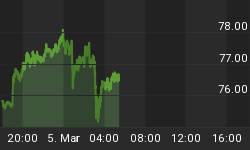Two weeks ago, both the administration and the Fed announced with straight faces that the recession was over and the signs of economic recovery were clear. Then last week, the president made a stunning decision that signals the administration's determination to repeat the mistakes of the Great Depression. Much like the Smoot-Hawley Tariffs that set off a global trade war and effectively doomed us to ten more years of economic misery, Obama's decision to enact steep tariffs on Chinese imported tires could spark a trade war with the single most important trading partner we have. Not only does China manufacture a whole host of products that end up on American store shelves, they are also still buying our Treasury debt.
One has to wonder why this course of action is being undertaken if the administration really believes its own statements about economic recovery. Why are they still trying to fix something they have supposedly already fixed? The most troubling thing is the rhetoric about free trade given to justify this. The administration claims it is merely enforcing trade policies and that this is necessary for free trade. This sort of double speak demonstrates a gross misunderstanding of free trade, economics and world history. Yet these are the same people the country trusts to solve our problems. This sort of thing should remove all doubt about the credibility of the decision makers in Washington.
The truth is this will hurt American consumers by driving up prices of tires and cars. This will also complicate matters for our already crippled manufacturing and agricultural industries, if and when China retaliates against US made products. Whatever jobs might be saved in the tire and steel industries here as a result of this protectionist measure will likely be lost in other American industries. It is even doubtful that those jobs will be saved, as cheap tires can be obtained from other places like Mexico instead. It is difficult to see any real winners among all the losers where trade wars are concerned. If Unions think this is beneficial to them, they are being penny-wise and pound foolish.
Free trade with all and entangling alliances with none has always been the best policy in dealing with other countries on the world stage. This is the policy of friendship, freedom and non-interventionism and yet people wrongly attack this philosophy as isolationist. Nothing could be further from the truth. Isolationism is putting up protectionist trade barriers, starting trade wars imposing provocative sanctions and one day finding out we have no one left to buy our products. Isolationism is arming both sides of a conflict, only to discover that you've made two enemies instead of keeping two friends. Isolationism is trying to police the world but creating more resentment than gratitude. Isolationism is not understanding economics, or other cultures, but clumsily intervening anyway and creating major disasters out of minor problems.
The government should not be in the business of giving out favors to special interests or picking winners and losers in the market, yet this has been most of what has consumed politicians' attention in Washington. It has reached a fevered pitch lately and it needs to end if we are ever to regain a functional and prosperous economy.















